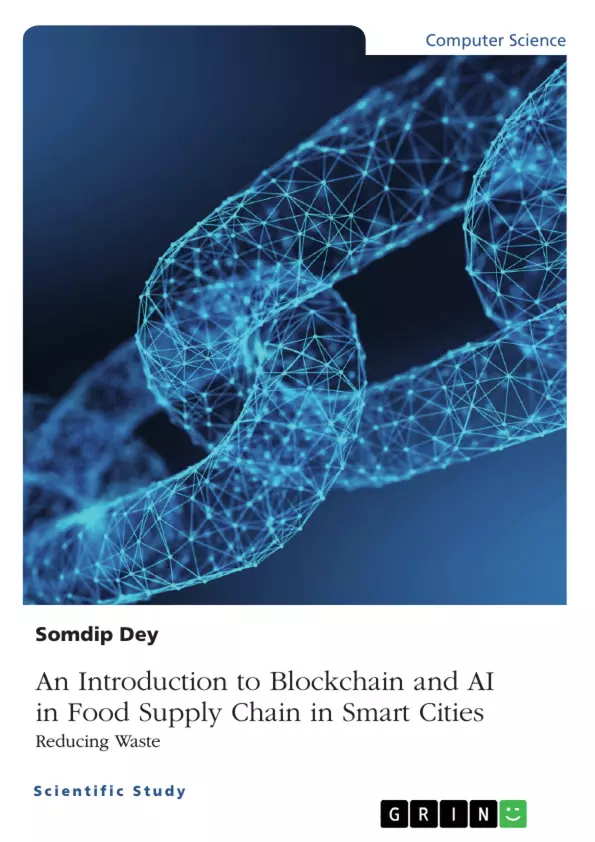Food waste is an important social and environmental issue that the current society faces, where one third of the total food produced is wasted or lost every year while more than 820 million people around the world do not have access to adequate food. However, as we move towards a decentralized Web 3.0 enabled smart city, we can utilize cutting edge technologies such as blockchain, artificial intelligence, cloud computing and many more to reduce food waste in different phases of the supply chain.
In this book, we introduce FoodSQRBlock and SmartNoshWaste - two blockchain based multi-layered frameworks in the food supply chain utilizing cloud computing, QR code and reinforcement learning to reduce food waste.
Inhaltsverzeichnis (Table of Contents)
- Introduction
- Blockchain and AI in Food Supply Chain in Smart Cities
- Food Waste: A Global Challenge
- Blockchain in Food Supply Chain
- Artificial Intelligence in Food Waste Management
- FoodSQRBlock Framework
- Conceptualization and Architecture
- Key Components and Functionality
- Implementation and Case Study
- SmartNoshWaste Framework
- Design and Development
- Integration with Existing Systems
- Evaluation and Optimization
- Future Directions and Research Opportunities
- Conclusion
Zielsetzung und Themenschwerpunkte (Objectives and Key Themes)
This book aims to explore the potential of blockchain and artificial intelligence (AI) technologies to reduce food waste in smart cities. It focuses on the food supply chain and introduces two innovative frameworks – FoodSQRBlock and SmartNoshWaste – designed to enhance food waste management through decentralized and data-driven approaches.
- Food waste as a global challenge and its environmental and social impact
- The role of blockchain technology in improving food traceability and transparency
- The application of AI algorithms in food waste prediction and optimization
- The development and implementation of practical frameworks for food waste reduction in smart cities
- The potential of integrating blockchain, AI, and other emerging technologies for sustainable food systems
Zusammenfassung der Kapitel (Chapter Summaries)
The book begins by outlining the severity of food waste as a global issue, emphasizing its negative environmental and social consequences. It then dives into the potential of blockchain technology to revolutionize food supply chains by enhancing transparency, traceability, and accountability. The book explores the application of AI algorithms for predicting food waste, optimizing inventory management, and promoting sustainable consumption patterns. It then presents the FoodSQRBlock framework, detailing its conceptualization, architecture, key components, and functionality. The book provides a practical case study demonstrating the framework's application in reducing food waste. The SmartNoshWaste framework is introduced next, focusing on its design, development, integration with existing systems, evaluation, and optimization. The book concludes by discussing future research directions and opportunities in the field of food waste reduction through innovative technology.
Schlüsselwörter (Keywords)
The primary keywords and concepts explored in this book include food waste, blockchain technology, artificial intelligence, smart cities, supply chain management, QR code, reinforcement learning, cloud computing, sustainability, and environmental impact.
- Arbeit zitieren
- Somdip Dey (Autor:in), 2022, An Introduction to Blockchain and AI in Food Supply Chain in Smart Cities. Reducing Waste, München, GRIN Verlag, https://www.grin.com/document/1194960



